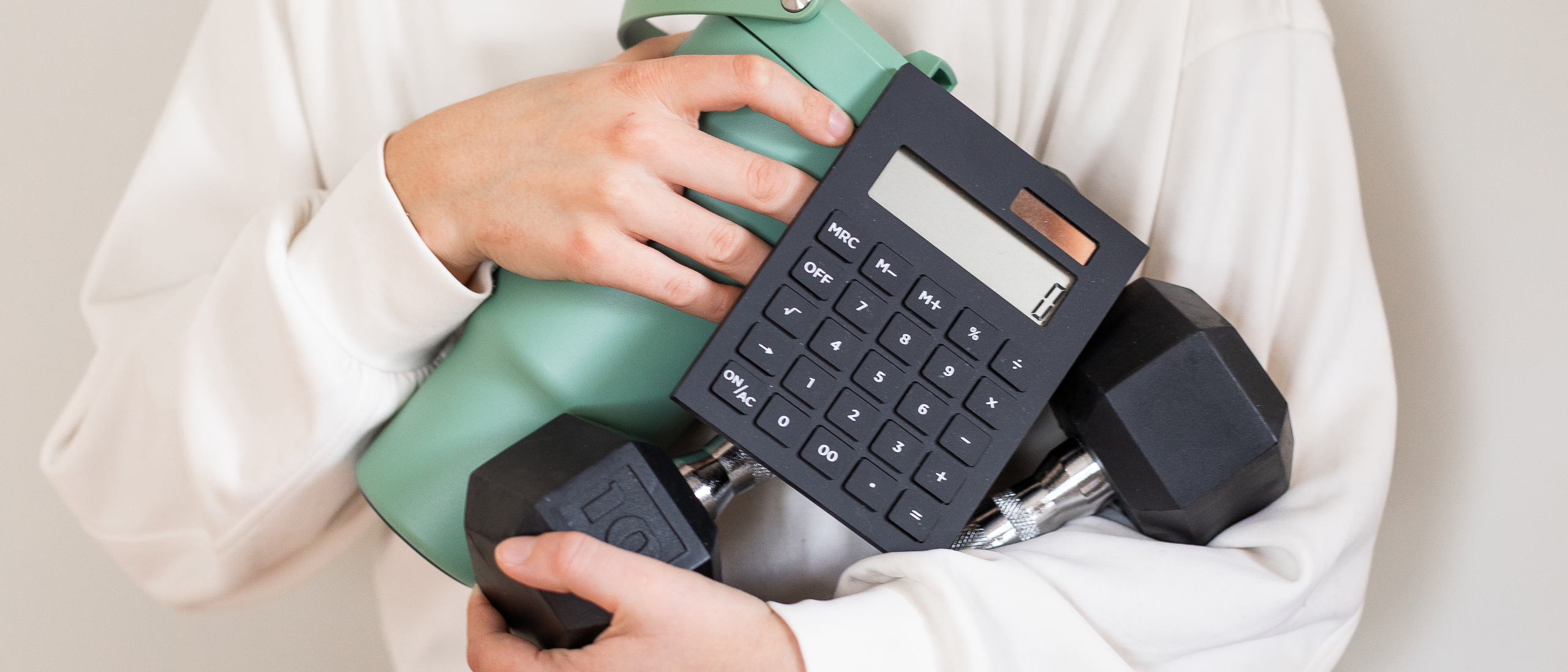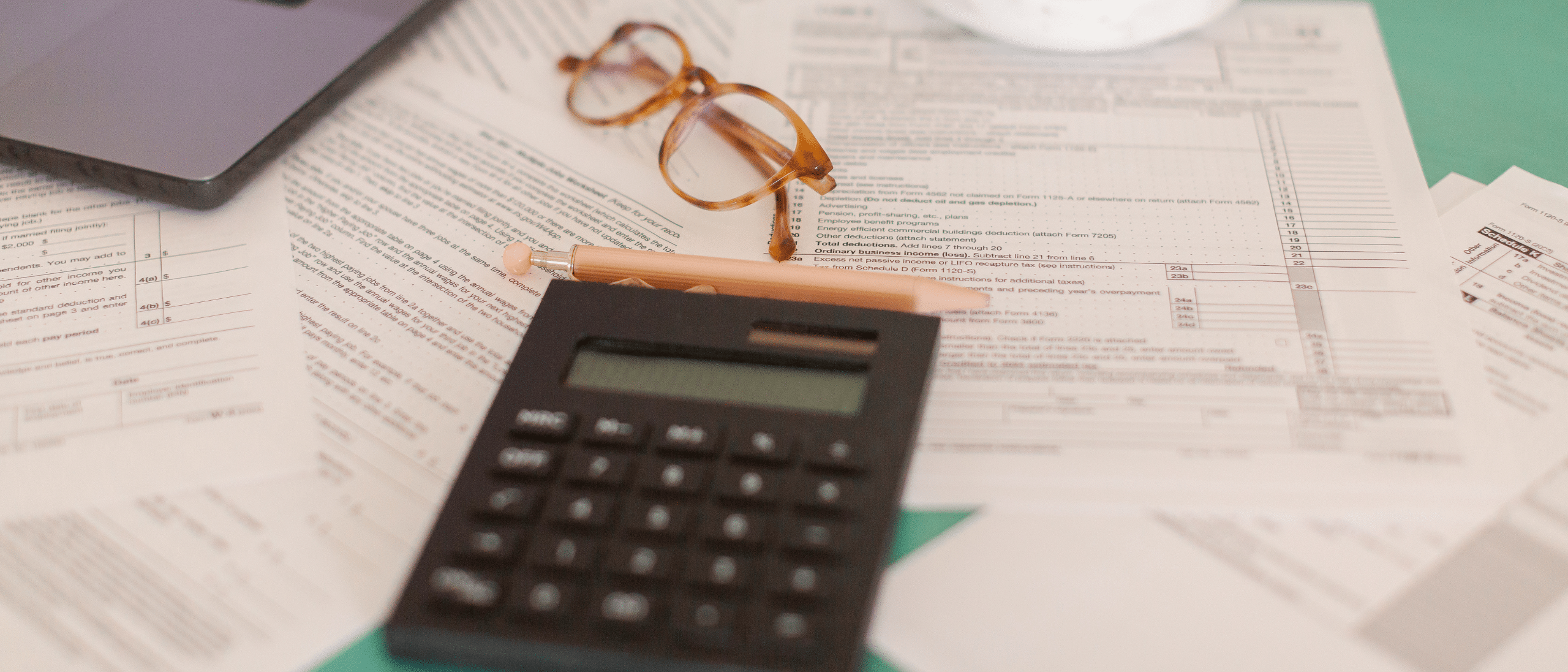I love to help my clients keep their hard-earned money by making sure they take advantage of every tax deduction and tax credit they possibly can.
Since I work with so many fabulous bloggers, I decided that today’s post should focus on tax write-offs for bloggers. I’ve even created a free downloadable desktop reference to help you!
What’s the difference between a tax deduction and a tax credit?
Alright, before we get to the list, let’s start with a short explanation of the difference between tax deductions and tax credits. What you need to remember is a tax deduction reduces your taxable income; deductions are subtracted before your bill is calculated. On the other hand, a tax credit reduces your tax liability; credits are deducted from your tax bill.
I’ve had clients ask me if it’s better to use tax deductions or tax credits. To that, my answer is, “Both!” In fact, you should use as many tax deductions and tax credits as you can!
The list I’m giving you today is a list of tax deductions–often called tax write-offs–that are commonly used by bloggers. However, to make sure you save as much moolah as you can at tax time, talk to an accountant about your tax credit options as well.
Which tax write-offs can bloggers use?
Here’s the list of the most common tax deductions that are available to bloggers as well as some explanation of how or when they can apply to you.
Home Office Deduction
If you’ve got a dedicated space where you craft your blog posts, then you can qualify for a home office deduction. The home office deduction can be calculated in one of two ways. The first way is to multiply the square footage of your home office by $5. So if your office is 50 square feet, you would have a deduction of $250.
The second way to calculate the home office deduction is to figure out what percentage of your home is used as a home office and then use that same percentage to calculate the portion of your rent/mortgage and bills that apply to your office. Although this route takes more calculation, it often means a bigger deduction.
Let me give you an example of how the percentage calculation works, even if you only have a small space. Let’s say you use a small corner of your living room solely for blogging. You have a small desk, a printer, and a cabinet for your work supplies. This space takes up 50 square feet of your 1,000 square foot home, which means your home office accounts for 5% of the expenses for your home.
To find your deduction, you’ll then calculate 5% of your rent or mortgage, utilities, insurance, internet bills, and all other home-related expenses. The sum of those calculations is the amount you can take for your home office deduction. If you spend $1,000 each month on your total rent or mortgage, utilities, and other home expenses, then your 5% will get you a $600 deduction for the year!
In order to use either of these calculation methods, you’ll just need to make sure that your home office space is used exclusively for work and that you save the receipts for all of your expenses.
Business Expenses
Any money you fork over to keep your blog running is a business expense. This includes fees or payments for things like domain registration, web hosting, blog design, photographers, and stock photo subscriptions. Here again, you’ll want to be diligent with keeping track of your receipts.
Office Supplies
From that sleek new keyboard to the trusty pen and paper you brainstorm ideas with, if it’s a necessary tool for your blogging trade, it counts as an office supply deduction. In addition to the typical office supplies you’d think of for this category, common office supplies written off by bloggers include:
- Office decor
- Small computer equipment like headphones and keyboards
- Shipping expenses
- Cleaning services
- Cleaning supplies
Repairs and Maintenance
If you’ve had to pay for maintenance repairs to your office or business space, or if you’ve paid to repair your computer, camera, or other equipment, those fees can be written off.
Mileage
If you’re hitting the road for blog-related meetings, events, or conferences, don’t forget to track your mileage. Even trips to the post office or photo shoots can really add up!
The easiest way to track your miles is to use a mileage-tracking app like MileIQ to make it all easier. With MileIQ, you can classify a trip as business or personal with a simple swipe, and then you can take two seconds to make a note about which business-related trip you are on.
Professional Development
Taking an online course, reading an ebook, or attending a blogging conference to hone your skills? That’s not just personal growth. Because you’re bettering yourself in order to better your business, it’s a tax deduction.
Contract Labor
Any payments you’ve made to contractors or consultants can be written off. This includes payments to people like virtual assistants and business coaches. Just remember that if you pay $600 or more to any of these people, you’ll want to file a Form 1099.
Software and Subscriptions
Got a premium video editor, email marketing software, or a fancy social media scheduling tool? You guessed it, those are deductible too.
Marketing Expenses
Whether it’s promoting your blog on social media or paying for ads, those dollars can be written off as business expenses.
Health Insurance
If you’re self-employed and paying for your own health insurance, you can deduct the cost of your insurance premiums from your personal tax return. If you’re currently without health insurance, you can visit healthcare.gov to find pricing available to small businesses in your area.
Self-Employment Tax Deduction
Wait. You can write off taxes on your taxes? Well, yeah. Self-employed bloggers can deduct the employer portion of self-employment taxes, which is usually about 7.65% of your net earnings.
Travel Expenses
If you’re jet-setting for blog-related adventures, keep track of your travel expenses like flights, hotels, and meals. They can add up!
When it comes to travel expenses, as long as the trip’s primary purpose is business, you can write off all of these common costs:
- Lodging
- Transportation like taxis, Uber, airfare, and train tickets
- Laundry and dry cleaning while traveling
- Tips for services
Food works a little differently, however. You can write off 50% of your food and drink bill if the meal was for a true business purpose. So if you had lunch to discuss business with a client, that would count, but if you bought yourself lunch, that does not.
Depreciation and Amortization
If you’ve splurged on some hefty blogging equipment like cameras, lighting, or a high-quality microphone, then depending on the type of asset you’ve purchased, you can write off its value over time through depreciation or amortization. Basically, this means that you can deduct the price of these purchases in even installments over the course of their expected lifetime.
Retirement Contributions
Contributing to a solo 401(k) or a Simplified Employee Pension (SEP) IRA can lower your taxable income while securing your future. You can decide up front how much you’d like to save each month, or you can wait until the end of the year to decide. You can even wait until April 15 of the following year to contribute for the previous year and still deduct that contribution from the previous year’s taxes.
Rent
If you rent a space specifically for work, like spaces for shooting videos or hosting your podcast, you can deduct those expenses, too.
Legal and Professional Fees
Hiring a lawyer, financial advisor, bookkeeper, or tax professional allows you to make sure your business is working as it should in all aspects, and it comes with a tax write-off. Win-win!
Other Fees
You can write off any fees you pay to someone else to help sell your product or service. So if you’re selling anything through your blog and using PayPal or another payment processor to do so, you can deduct any fees you’re paying to those processing companies. You can also deduct bank fees paid for your business account.
Licenses
Any business or professional license, trademark fee, or business formation or renewal fees you’ve paid can be written off.
To help you keep track of all of these tax write-offs, just download the free worksheet below and reference it throughout the year. In the meantime, if you find yourself with a little writer’s block and have a few minutes to spare, I’d love for you to read my other blog articles for small business owners like you!




